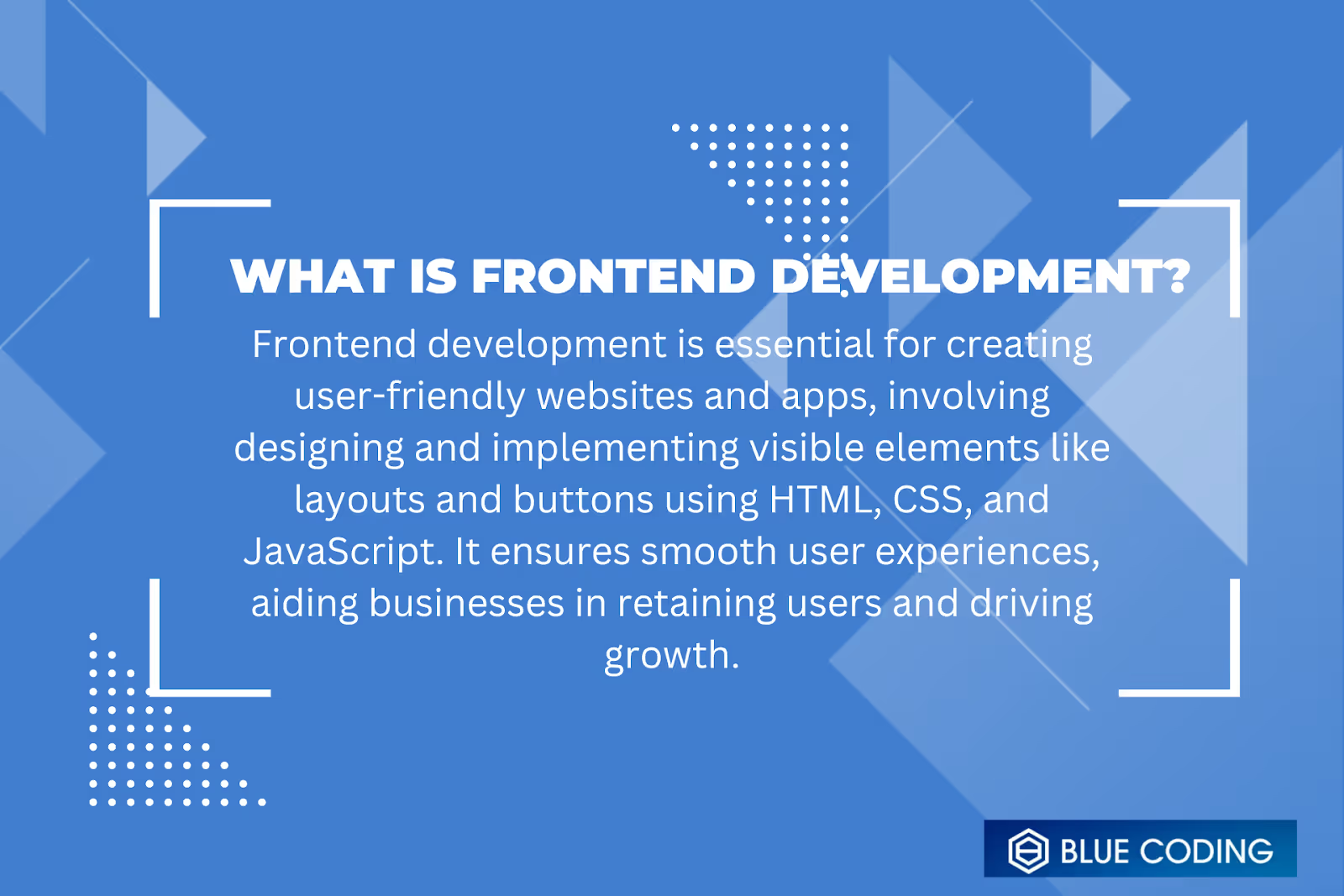Frontend development is a crucial aspect of creating websites and applications that users interact with directly. It involves designing and implementing the visible parts of a website or application, such as layouts, buttons, forms, and navigation menus. Frontend developers use languages like HTML, CSS, and JavaScript to build these elements and ensure they function smoothly across different devices and web browsers. The importance of Frontend development lies in its role in delivering a smooth and enjoyable user experience. By creating easy-to-use interfaces and optimizing performance, Frontend developers help businesses attract and retain users, ultimately driving growth and success. According to projections by the Bureau of Labor Statistics, the demand for Frontend developers is expected to grow rapidly in the coming years, with approximately 19,000 average job openings projected each year from 2022 to 2032. This growth emphasizes the value of Frontend development.

Proficiency in HTML, CSS, and JavaScript is essential for Frontend developers. HTML knowledge is essential for effectively structuring web content, ensuring its clarity and logical organization whereas CSS expertise enables developers to compose visually appealing and user-friendly interfaces by manipulating styling and layout elements. On the other hand, knowing JavaScript well helps developers make web pages more interactive and convenient. This makes users more engaged and creates better experiences on the web.
Familiarity with popular Frontend frameworks and libraries such as React, Angular, Vue.js, and jQuery is necessary. These tools facilitate rapid development, code reusability, and the creation of feature-rich web applications. In other words, we can say that these libraries and frameworks are the key to successful Frontend development.
Responsive web design means making websites that look good and work well on any device, whether it's a big computer screen or a small smartphone screen. Frontend developers need to know how to do this so that when people visit the site, it looks right and works smoothly, no matter what device they're using.
Version control systems, like Git, are tools that help developers work together on coding projects. They keep track of all the changes made to the code, making it easier for developers to collaborate and avoid mistakes. It's like having a history book for the code, so developers can see who did what and when, and go back to previous versions if needed.
Cross-browser compatibility refers to making sure that a website or web application works well on different internet browsers. It's important for Frontend developers, who work on the parts of a website that users interact with directly, to be good at fixing problems that arise when a website doesn't look or work the same on different browsers. They also need to optimize or make improvements to, how a website performs so that it loads quickly and responds smoothly to user actions, like clicking buttons or scrolling.
User experience design principles are about understanding how people interact with websites and using that knowledge to create interfaces that are easy and pleasant to use. Frontend developers need to know these principles well so they can design interfaces that make sense to users and help them accomplish what they want to do on a website. When websites are simple to use, people are more satisfied and engaged with them, which is important for keeping them coming back.
Frontend developers should adhere to accessibility standards such as WCAG (Web Content Accessibility Guidelines) to ensure that web content is perceivable, operable, and understandable for users with disabilities.
Frontend developers should be proficient in testing frameworks and debugging tools to identify and rectify issues in web applications, ensuring robustness and reliability.
At Blue Coding, our aim is to connect clients with amazing Frontend developers for their projects. We carefully choose skilled and experienced developers and our team can handle complex tasks well. Whether you need help with website design or making apps, we can do it. We know how important it is to work together smoothly. Even though we specialize in finding talent from Latin America, our developers speak English and can work in teams from anywhere. Want to add skilled Frontend developers to your team? Contact us now to hire remote developers and see how Blue Coding can help you.
Subscribe to our blog and get the latest articles, insights, and industry updates delivered straight to your inbox